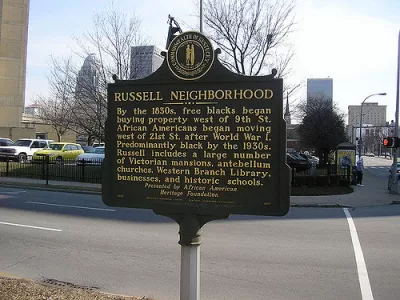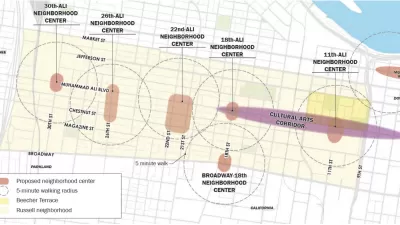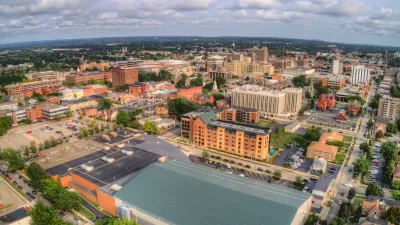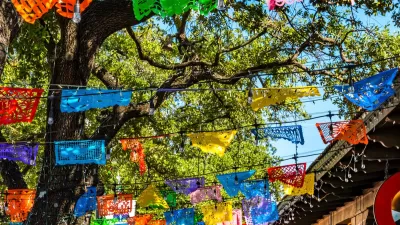The Department of Housing and Urban Development announced another round of Choice Neighborhood grants in December, awarding five communities a total of $132 million in grant funding.

"U.S. Housing and Urban Development (HUD) Secretary Julián Castro [recently] announced that five communities across the U.S. will receive more than a combined $132 million to redevelop severely distressed public or assisted housing and revitalize surrounding neighborhoods," according to a press releases. The Choice Neighborhoods Planning Grants went to Denver, Boston, St. Louis, Camden, and Louisville.
As an example of the enthusiasm of local leaders for the Choice Neighborhood funding, Jacob Ryan reports on the response in Louisville after HUD awarded nearly $30 million to the Louisville Metro Housing Authority for the redevelopment of the West Louisville neighborhood of Russell.
"The grant from the U.S. Department of Housing and Urban Development will serve as a pivotal peg in the plan to spur new economic development and residential infill in the neighborhood currently beset with poverty, blight and crime," explains Ryan.
"We are ecstatic. This is a huge day not just for Russell, not just for West Louisville, but for our entire city," wrote Louisville Mayor Greg Fischer after the funding was announced.
FULL STORY: HUD Awards $132 Million to Five Communities to Revitalize Housing, Surrounding Neighborhoods

Manufactured Crisis: Losing the Nation’s Largest Source of Unsubsidized Affordable Housing
Manufactured housing communities have long been an affordable housing option for millions of people living in the U.S., but that affordability is disappearing rapidly. How did we get here?

Americans May Be Stuck — But Why?
Americans are moving a lot less than they once did, and that is a problem. While Yoni Applebaum, in his highly-publicized article Stuck, gets the reasons badly wrong, it's still important to ask: why are we moving so much less than before?

Using Old Oil and Gas Wells for Green Energy Storage
Penn State researchers have found that repurposing abandoned oil and gas wells for geothermal-assisted compressed-air energy storage can boost efficiency, reduce environmental risks, and support clean energy and job transitions.

Updating LA’s Tree Rules Could Bring More Shade to Underserved Neighborhoods
A new USC study finds that relaxing Los Angeles’ outdated tree planting guidelines could significantly expand urban tree canopy and reduce shade disparities in lower-income neighborhoods, though infrastructure investments are also needed.

California's Canal Solar Projects Aim to Conserve Resources and Expand Clean Energy
California’s Project Nexus has begun generating electricity from solar panels installed over irrigation canals, with researchers and state agencies exploring statewide expansion to conserve water and boost clean energy production.

HHS Staff Cuts Gut Energy Assistance Program
The full staff of a federal program that distributes heating and cooling assistance for low-income families was laid off, jeopardizing the program’s operations.
Urban Design for Planners 1: Software Tools
This six-course series explores essential urban design concepts using open source software and equips planners with the tools they need to participate fully in the urban design process.
Planning for Universal Design
Learn the tools for implementing Universal Design in planning regulations.
Heyer Gruel & Associates PA
City of Moreno Valley
Institute for Housing and Urban Development Studies (IHS)
City of Grandview
Harvard GSD Executive Education
Salt Lake City
NYU Wagner Graduate School of Public Service
City of Cambridge, Maryland





























